
Deep in the Amazon jungle a team of scientists from the UK have been busy studying a powerful plant medicine not readily available in Western society.
Back home they’ve seen patient after patient present with depression, anxiety, PTSD, and other mental illnesses so prevalent these days.
Ayahuasca – a psychoactive brew that has been used for generations by indigenous communities – is simply not an option for these types of patients in mainstream Western medicine.
Yet, a growing number of people are boarding planes, sometimes spending thousands, to travel to the Amazonian jungle to drink this traditional plant medicine in the hope of healing a wide range of mental, emotional, and physical issues. For others, it may be part of a spiritual quest.
It is these very people that Dr Simon Ruffell, Nige Netzband and WaiFung Tsang are particularly interested in as they carry out invaluable, pioneering work into the medicinal effects of ayahuasca.
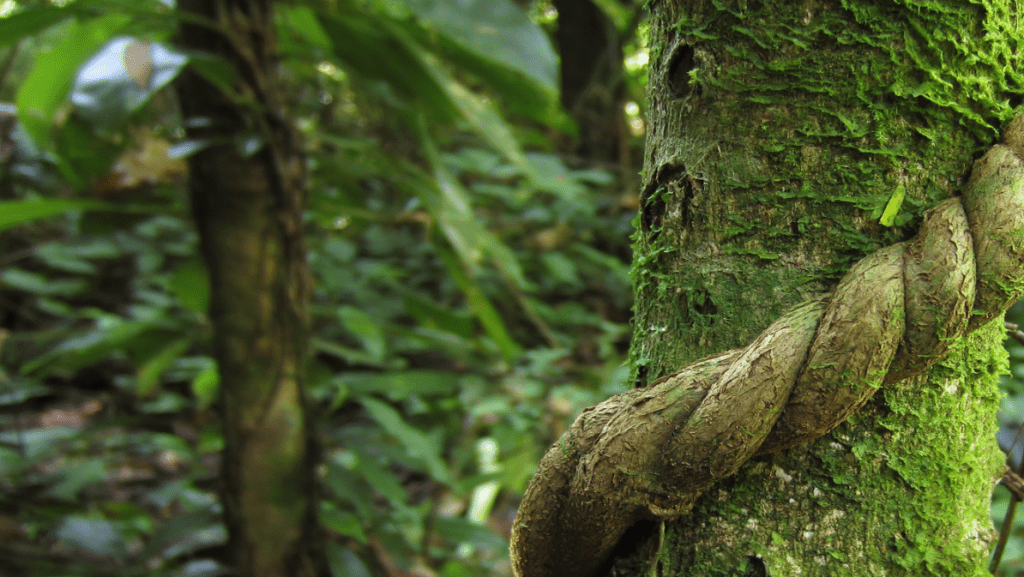
Working in partnership with The Ayahuasca Foundation at the Riosbo Research Centre in the heart of the Peruvian jungle, the team are leading the first ever government-funded study into ayahuasca.
Currently in the process of publishing an enlightening study on the effects of ayahuasca on personality, they are also finalising a very promising paper on ayahuasca’s effects for processing childhood trauma.
This study investigated the effects of ayahuasca on a range of common mental health conditions, such as anxiety and depression.
“When we started going to psychedelic science conferences there was a lot of research on psilocybin, and MDMA was beginning to get a lot of attention as well,” said Dr Ruffell.
“Despite the growing amount of sensational anecdotes, only a small amount of solid research appeared to exist (on ayahuasca), and this was largely based around the ayahuasca churches in South America – the Santo Daime and UDV.
“There seemed to be a gap in the literature looking at retreat employing traditional indigenous practitioners. We were surprised by that because that’s where the growing interest really is. So that’s where we wanted to start.
“Also, we recognised that the set and setting was vital. The curanderos (traditional practitioners) and the tradition surrounding ayahuasca can be just as important, if not more important, than the actual substance. We wanted to try and encompass as much of that as possible.”
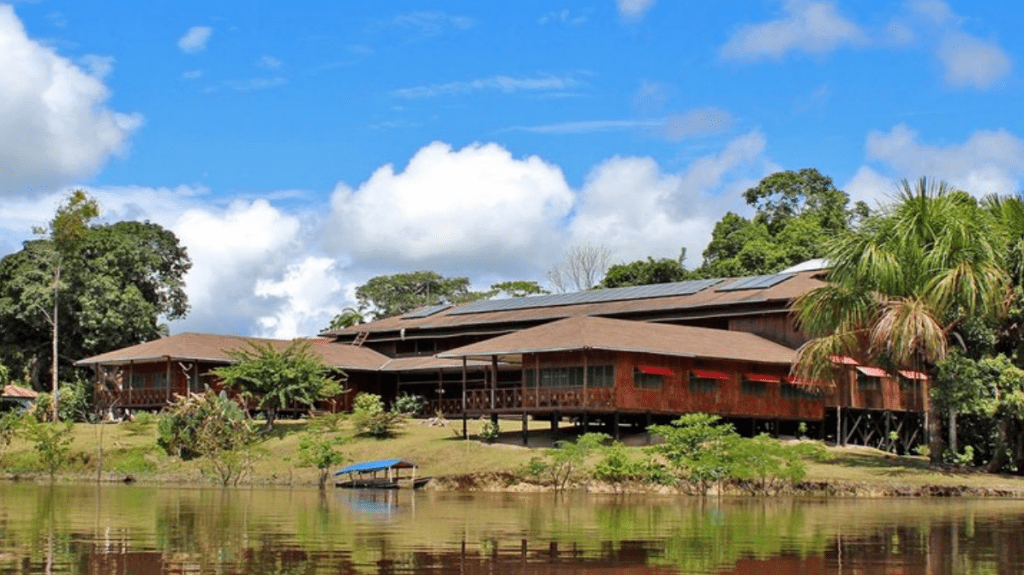
As a psychiatric doctor with NHS England and a Senior Research Associate with The Institute of Psychiatry, Psychology and Neuroscience at King’s College London, Dr Ruffell had taken a break from his work at home around five years ago and did some voluntary psychiatric work with child soldiers in Uganda.
He then continued his travels to South America and had a chance meeting with a fellow medical expert, which proved to be pivotal to where his journey has taken him today.
“I came across someone who was working at the Ayahuasca Foundation,” explained Dr Ruffell. “We got on like a house on fire. We were roughly the same age and same grade, but trained in a different kind of medicine.”
“He basically said, ‘you’ve got to get yourselves down there and see what you think of ayahuasca’. I’d heard of ayahuasca before and had been interested in psychedelics for a while.
“So, I went down to the retreat centre and was really blown away by the results that people were getting; the results that I saw and the stories that were floating around.
“At that point, the thing that really struck me was that ayahuasca had become a wide trend and lots of people were drinking it – but there wasn’t research looking at the use of ayahuasca in these types of settings.
“We wanted to begin to map out the effects that ayahuasca has on different people’s personalities because another thing I noticed was that there was quite a broad range of people consuming it.
“I wondered if there was a certain type of personality that this medicine would help most, and if other personalities would be hindered.” said Dr Ruffell.
The team set out to design experiments that would provide a foundational understanding for any potential clinical applications that ayahuasca may have to offer.
The Riosbo Research Centre, which is owned by The Ayahuasca Foundation, and located around three hours from Iquitos deep in the Amazon jungle, hosts regular ayahuasca retreats and educational programmes.
The centre is led by American man Carlos Tanner, indigenous curanderos, and a specialist international team of facilitators at The Ayahuasca Foundation.
In 2018, they spent several months on a smaller study looking at the effects of ayahuasca on personality. This was an observational study that involved giving people a series of questionnaires before, during, and six months after an ayahuasca retreat involving six ceremonies.
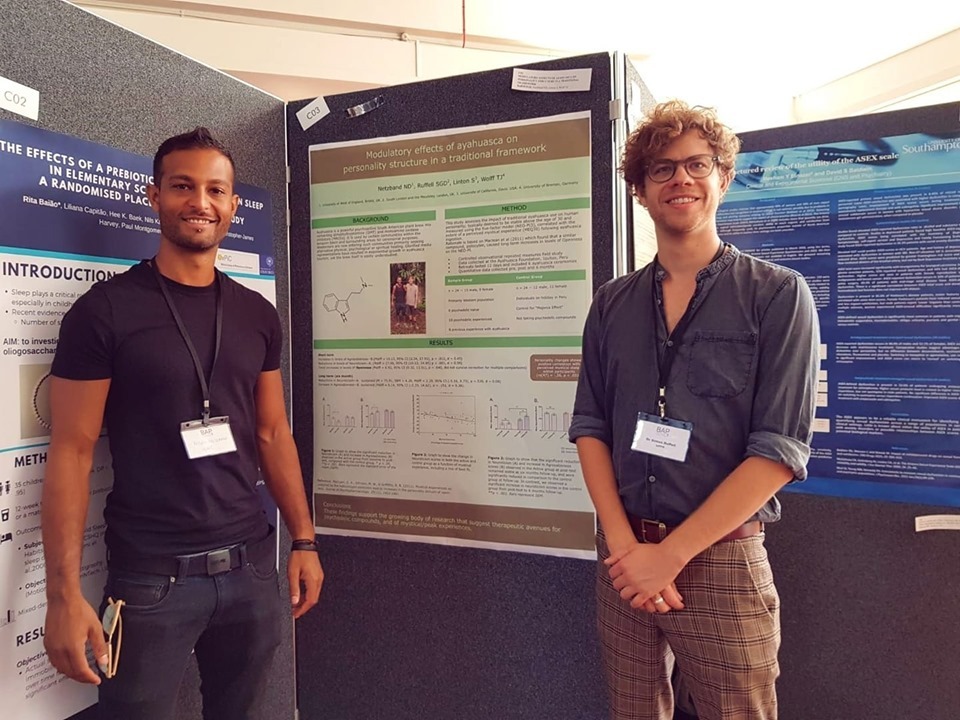
The study showed that drinking ayahuasca led to a significant reduction in neuroticism, a finding that was maintained when a follow-up was done six months later. Another sustained change was that ayahuasca drinkers displayed a clear increase in their agreeableness.
Dr Ruffell said: “Seeing the decrease in neuroticism immediately after the retreats – I wasn’t particularly surprised by that. But I was quite surprised to see the results at the six-month follow-up, when participants hadn’t continued to drink the substance.
“For me, those were really exciting results. It made me want to continue the follow-up for a year, or even longer, but unfortunately we weren’t able to do that with the study.
“It suggested the real potential therapeutic benefits of ayahuasca could have on some people.”
This initial study was only a small project funded personally by the team with a modest sample size of 24 people, but researchers in London and Brazil were very interested in the findings.
Dr Ruffell and colleagues self-funded further research into ayahuasca, but then through the University of Exeter, received funding from the Medical Research Council in the UK. This study was designed to look specifically at the impact of ayahuasca on childhood trauma.
“Childhood trauma is an important area because many of the conditions we see today are potentially rooted in traumatic incidents which occur in childhood,” said Dr Ruffell.
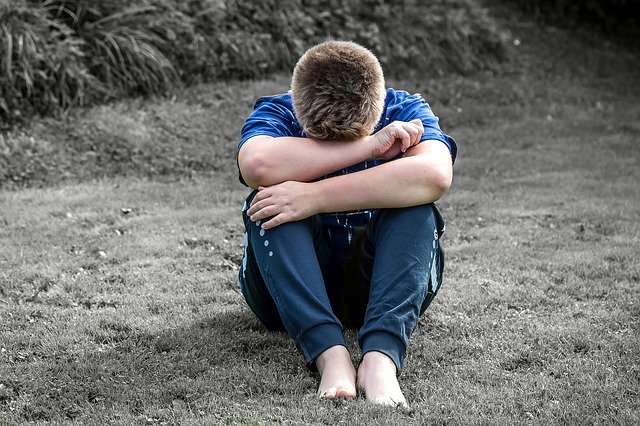
The research team spent six months interviewing a larger group of ayahuasca drinkers, including those who suffered from mental health issues such as depression and anxiety.
The focus is on how childhood trauma may have played a key role in the development of these conditions. This study is also the first ever study to look at the effects of a psychedelics on gene expression.
Data from this study is currently being analysed, however, Dr Ruffell explains that the preliminary results seem to suggest significant improvements in a number of mental health outcomes in both the short and long term, including that of depression, anxiety, memory, wellbeing, self-compassion, and socio-communicative traits.
But how is it that psychedelic substances like ayahuasca have such a profound effect on the brain? What is really going on beneath the skull when people drink the medicine?
A psychiatrist leading the only government-funded research into ayahuasca might just be the perfect person to ask.
“The most honest thing to say before getting into it is: currently we don’t know for certain, although as research continues we are getting a better idea” admitted Dr Ruffell.
“The information that we do have is that psychedelics, including ayahuasca, temporarily decrease connectivity in a region of the brain called the default mode network.
“The default mode network is active when the brain is at its normal resting state. For example, if you’re just sitting down and daydreaming, that’s the default mode network that’s lighting up. It has been described as being the network responsible for our sense of self.”
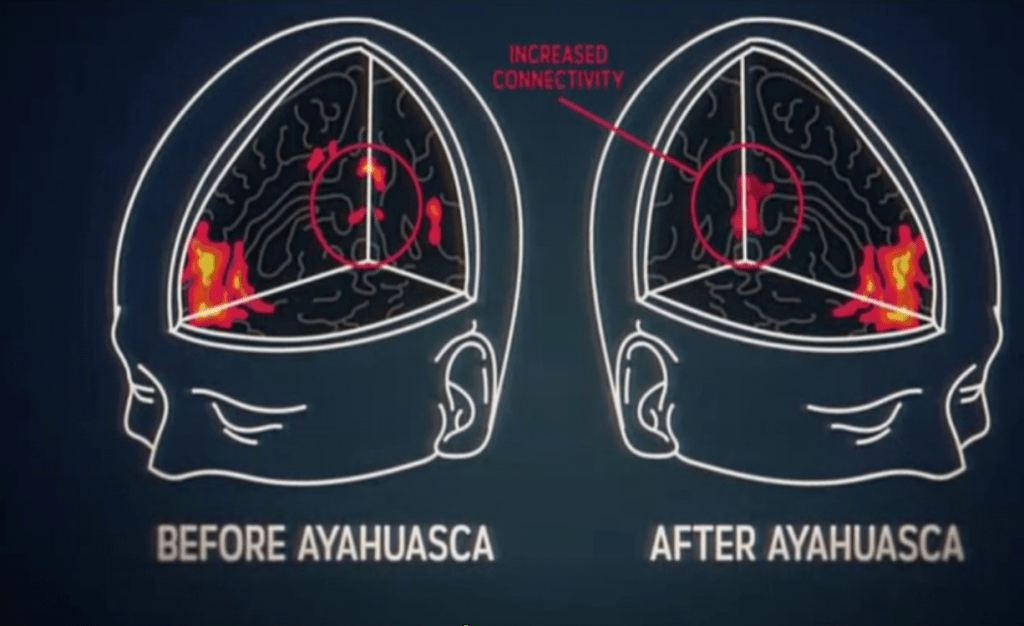
“With conditions like depression and anxiety, it becomes over-active. For example, if you’re at a party with a group of people and make a joke but nobody laughs and they all carry on talking, if you’re someone who suffers from depression or anxiety you might start overthinking your behaviour.
“In theory, what we see with ayahuasca is that it can reset this activity. It is also important to consider a concept called neuroplasticity, which is the ability of the brain to act like putty and to make new connections.. Ayahuasca appears to enhance both of these capabilities.
“We see that when the brain is in a psychedelic state – such as with ayahuasca – it is able to make new connections pulling information from different parts of the brain. It allows you to have a more objective, rather than subjective view on things.
“A really nice way to think of this is that it makes the brain biologically ready for psychological change. Your brain is more malleable, and ready to think about things in a different way, rather than get caught in repetitive cycles.
“These changes in the brain may then result in the reformation of the default mode network, kind of like rebooting your computer
“MRI scans have been performed before and after people taking psychedelics, and that’s how we know different regions of the brain are becoming more active and connected, and others are becoming less so.”
The team are excited to analyse the fresh data, with all of the preliminary findings holding tantalising promise.
In the upcoming part two of our interview with Dr Ruffell, we’ll be sharing a Q&A session we did with him to learn more about the amazing work being done at The Riosbo Research Centre in conjunction with the Ayahuasca Foundation.
* Would you like to join the #ThankYouPlantMedicine movement on Facebook? Come join our community by clicking here.
* Want to help spread our message and support the #ThankYouPlantMedicine movement as a volunteer? Please click here for more details.
* DISCLAIMER & IMPORTANT SAFETY MESSAGE
The #TYPM movement does not encourage any illegal use or abuse of plant medicines and psychedelics, whether cultivated in nature or lab synthesized.
Psychedelics and plant medicines – even within the confines of applicable laws – are not appropriate or beneficial for everyone. They are not magical cures, but are tools that when used properly – with respect, clear intentions, guidance, and a safe, supportive environment – can catalyze personal growth and healing.
To minimize harm and increase therapeutic potential, it is imperative that one performs sufficient research, adequately prepares, and integrates their own experience.





Wow, it’s interesting to know that there are certain plants that can help with mitigating the manifestations of anxiety. One of the things a friend of mine would like to experience in her life is to go on a plant medicine retreat. If we ever go on one someday, I think it will be exciting to take note of the changes in her behavior that I might notice.